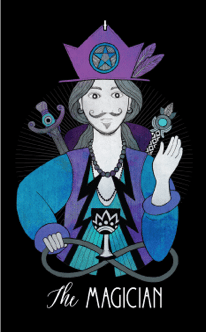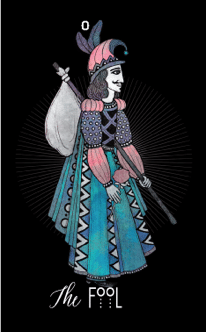
Anyone who has kept a dream journal for a period of time recognizes their dreams are meaningful, often cleverly responding to daily concerns and the circumstances of our lives. There are several purposes to the dreaming process. First of all, dreams creatively problem solve. Secondly, they unleash hidden emotions, help to resolve emotional conflicts, and reconcile losses. And thirdly, they offer us a glimpse at the nature of the soul, our universe and the more invisible psychic and heavenly realms.
There has been more written on the topic dreams than almost any other topic. Yet the dreaming process continues to be misunderstood, even relegated to the garbage heap by science, whose theorists consider dreams to be no more than the debris of the mind being cleared out before morning.
The following dream precepts will help you understand the dreaming process a bit more. Dream wisdom tells us that by honoring our dreams we are given valuable psychological tools for our emotional, psychological and spiritual growth.
Precept 1: Every Dream Offers an Opportunity for Growth
No dream is meaningless or the result of a too-heavy meal eaten the night before. Every fragment, image, symbol, and sign in a dream has meaning, conveying something about the dreamer’s life, concerns, emotions, attitudes and subconscious beliefs. Therefore, every element deserves further exploration so that the dream’s intended message can be understood by the dreamer. Many dreams provide constructive criticism, pointing out how our limiting beliefs sabotage our efforts. It is not enough to witness the emotional quality of the dream, nor is it accurate to generalize dream information as merely a recapitulation of daily events. It is important to identify what growth opportunity is being called forth from the dream content.
Precept 2: Every Dream Has an Intended Message
Therefore, every dream is communicates something valuable. Some dream experts will tell you a dream can have multiple meanings. However, that isn’t exactly true. Certainly a number of associations, both objective and subjective, can be made about each dream’s symbols that may eventually lead the dreamer to an accurate conclusion. But a dreamer can get steered away from the intended message if they apply too many associations to a symbol. Also, a dream’s meaning is not coded information in an unintelligible language meant to trick the mind or ego. Dreams make sense.
Precept 3: Dream Language is Metaphorical, Beautiful, Mysterious and Meaningful
In most cases, each symbol in a dream acts as a metaphor for a larger idea or is a statement of truth about what one feels or believes. Symbols sometimes have a personal association, and therefore the meaning is only understood by the dreamer. For instance, a pink rose as a symbol can remind you of your mother who loved pink roses. Therefore, the pink rose represents your mother’s love. Symbols in dreams also have a universal meaning drawn out of the collective unconscious. In this case, the pink rose represents feminine qualities of beauty and love.
Precept 4: Characters in a Dream Serve the Consciousness of the Dreamer
They may play more than one role. Not all characters in dreams represent parts of our personality contrary to popular belief. Some characters mirror other perspectives to our beliefs and attitudes, complement us or appear as who they are in real life.
Precept 5: Even a Bad Dream is Good
Therefore, there is nothing to fear in a dream. Even our worst nightmares may come as warnings of conflict that demand resolution within the psyche. Nightmares may signal that we are ready to start working to clear away the things that deeply bother us. Villains and terrorists who threaten us in a dream may point to our own fears about showing our personal power and authority in the world. By confronting the demons in our dreams, we vanquish the fears that paralyze us.
Precept 6: As the Jewish Talmud Says, “A Dream Not Understood Is Like a Letter Left Unopened”
Dreams unearth jewels of meaning from the subconscious, symbolic information from the depths of the soul. Each is full of symbolic information that needs to be investigated and valued. Therefore, every symbol and element in a dream must be appreciated. Each is too precious to disregard or to cast away as trivial or not worthy of attention.
Precept 7: Dreams Come From a Wise and Intelligent Source
One should not try to direct or control the dreaming process. Or do we need to feel controlled by our dreams? Dreams come from a wise and intelligent source. The subconscious is united with a higher creative intelligence ready to work out conflicts that erupt and disturb the internal world. Lucid dreamers sometimes consider the practice of controlling the outcome of a dream as mastering their subconscious. However, they may be defeating their dream’s purpose by consciously redirecting a scene or producing a desired outcome. Forcing any action in a dream based on an ego-desired outcome may interrupt a greater creative solution. The outcome we want may not serve the balance of the dreaming life.
Precept 8: Wisdom Is Derived From Intuitive Dream Work
Wisdom is the product of intuitive understanding. Therefore, the messages in dreams are best deciphered with the intuitive mind rather than picked apart by an analytical process. Any dream dictionary is limited to the writer’s general understanding of the language of the soul. Unfortunately, many dream dictionaries on the market offer outdated interpretations based on superstition and conjecture, such as a cat in a dream being a band omen. Dreams are best decoded with the help of someone close to you – an intuitive and compassionate friend with insight is far better than any dream dictionary. Some dreams require an expert to decipher them.
Other Spirituality Articles by Ariadne Green
- The Characters in your Dreams
- Kindred Friends and Spiritual Alliances
- The Darker Areas of Your Soul
- Are You a Woman Warrior?
- Loving Compassionately with Boundaries
- Wish Fulfillment Dreams
- When a Little Anger Is Good
- Visiting Sacred Spots
- When Angels Walk on Earth
- The High Road to Happiness
- Developing Enlightened Spiritual Attitudes
- The Power of Your Name
- Alleviating Stress the Enlightened Way
- Finding Sacred Moments in Nature
- Natural Disaster Dreams
- Awaken to the Magic of Life
- A Child Can Be Your Guru
- Animal Powers in Dreams
- Critical Thinking as a Spiritual Practice
- The 5 Most Common Dreams
- Renewing Your Life After a Loved One’s Death
- The Metaphysical Qualities of Your Birthstone
- Manifesting Your Dreams: Wishful Thinking or Not?
- Are Spirits Knocking on the Door of Your Dreams?
- Pregnancy Dreams: A Glimpse Into the Creative Process












